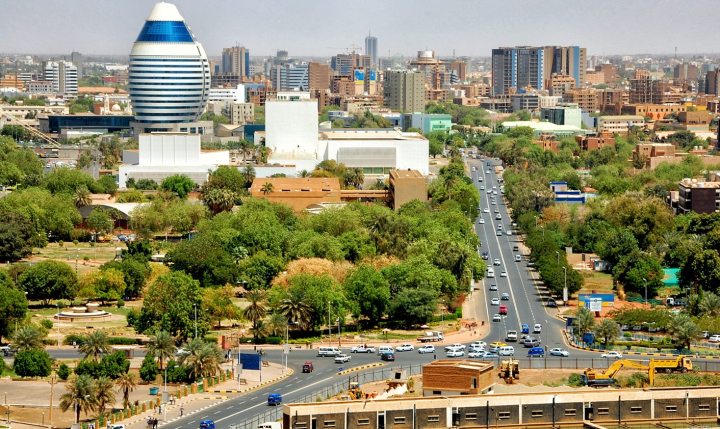Africa
Sudan: Sanctions eased, Khartoum comes in from the cold

South Africa was heavily criticised for failing to arrest Sudanese President Omar al-Bashir in 2015. But maybe South Africa was just ahead of the curve. With sanctions lifted and aid money flowing in, Bashir’s regime is slowly shedding its pariah state status – for better or for worse. By SIMON ALLISON.
Sudan is open for business. After 20 years, the United States has announced that it is easing trade restrictions in a move designed to normalise relations with Khartoum.
“The actions taken today are an outcome of ongoing engagement between the United States and the government of Sudan, and the result of sustained progress by the government of Sudan on several fronts, including a marked reduction in offensive military activity, a pledge to maintain a cessation of hostilities in conflict areas in Sudan, steps toward improving humanitarian access throughout Sudan, and co-operation with the United States on counterterrorism and addressing regional conflicts,” said the US Treasury in a statement released on Friday last week.
The deal to lift sanctions was approved by both the Obama administration and President-elect Trump’s team. Initially, US companies wishing to trade with Sudan can apply for a waiver. Depending on Sudan’s behaviour, the trade embargo will be scrapped entirely after 180 days. Sudanese authorities are already planning for an influx of foreign investment following the announcement.
For decades a pariah state, it appears that Sudan is being welcomed back into the international fold, albeit gradually. South Africa’s refusal to arrest President Omar al-Bashir when he visited Johannesburg in 2015 is a case in point; so too is the $11-billion investment in Sudan by Saudi Arabia, which is a quid pro quo for Sudan’s active support of Saudi’s military intervention in Yemen. It’s no surprise, in this context, that both the African Union and the Organisation of the Islamic Conference offered unequivocal support for the American decision.
Critics argue that this is less about substantive reform of the regime in Khartoum, and more about regional and global geopolitics. Sudan is important again.
“The importance of geopolitical factors in the recent decision cannot be understated. Sudan is seen as a stabilising force in an increasingly volatile neighbourhood that includes a failed state in Libya, unrest in Ethiopia and the looming threat of genocide in South Sudan. Sudan is also working with the West to tackle irregular migration and terrorism in the region,” wrote journalist Simona Foltyn for African Arguments.
Sudanese activists in the diaspora have lambasted the decision, saying that it amounts to a “betrayal” of the Sudanese people and will only encourage Bashir’s “kleptocratic genocidal dictatorship”.
Eric Reeves, a prominent American expert on Sudan, said US claims that Khartoum has made significant efforts to reform bear little relation to what’s happening on the ground.
“The moral hypocrisy, the mendacity, and the sheer foolishness of the Obama administration’s claim that there has been a ‘sea change’ of improvement in Khartoum’s facilitating of humanitarian access in Sudan is staggering. This isn’t some shading of the truth; this isn’t slightly disingenuous; it is a bald lie,” said Reeves.
Within Sudan, however, the reaction has been a little more nuanced. As Foltyn reported: “The view from Sudan, however, appears markedly different. In dozens of conversations with the author over the past months, Sudanese from all walks of life and from across the political spectrum overwhelmingly described the sanctions as unjust and counterproductive.
“Even the fiercest political opponents of Bashir voiced support for sanctions relief, not because they doubted their government’s guilt in perpetrating human rights abuses, but because the sanctions have done little to bring about change on the ground. Despite there being sanctions in place for the majority of his rule, Bashir remains in power after 27 years, with no signs of political opening. The sanctions didn’t limit the elite’s ability to amass wealth, nor to get their hands on weapons. Moreover, average citizens bore the brunt of the trade embargo.”
The announcement leaves Sudan’s various opposition movements in a difficult spot.
“It is tricky,” said Sabir Ibrahim, representative in South Africa for the Sudan People’s Liberation Movement-North, which is fighting to overthrow the regime from its base in the Nuba Mountains of Sudan. “We want to believe the Americans when they say that Khartoum will stop the bombardments, but we also know that Khartoum doesn’t have a good record in this area.” DM
Photo: Khartoum (kopi_kocok via Flickr)



















 Become an Insider
Become an Insider